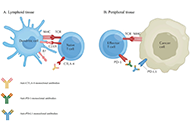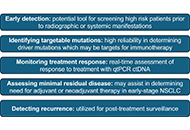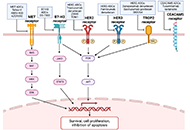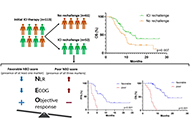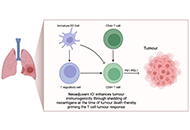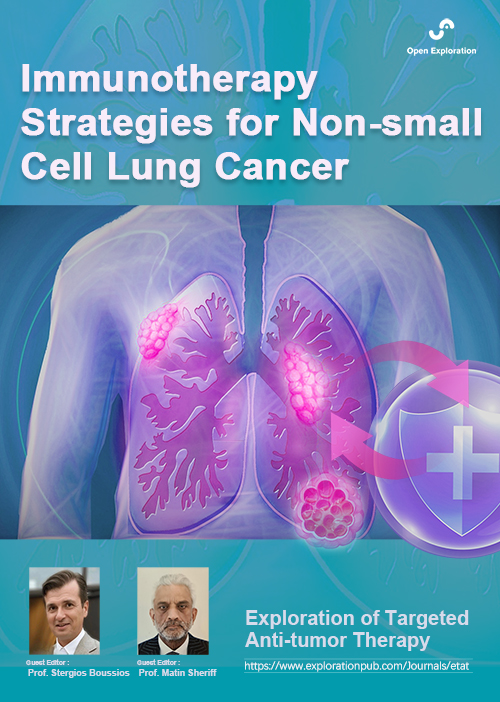
Immunotherapy Strategies for Non-small Cell Lung Cancer
Guest Editors
About the Special lssue
Lung cancer stands as one of the malignancies with a high incidence rate and mortality globally. Non-small-cell lung cancer (NSCLC) constitutes 80% of lung cancer cases, primarily encompassing squamous cell carcinoma (LUSC) and adenocarcinoma (LUAD). The advent of immunotherapy has ushered in a new era in antitumor treatment, with single or combination immunotherapy emerging as first- and second-line treatment strategies for NSCLC.
Immunotherapy, particularly using inhibitors against programmed death protein 1 (PD-1)/its ligand (PD-L1) or cytotoxic T lymphocyte antigen 4 (CTLA-4), represents the most classical and widely applied immune checkpoint inhibitors (ICIs). Despite the significant improvement in overall survival for NSCLC patients across stages I-IV, not all patients exhibit a response to immunotherapy. Oncologists and NSCLC patients confront the challenges of primary and secondary resistance to immunotherapy, as well as progression after treatment discontinuation.
Primary resistance is characterized by tumor progression (PD) or stable disease (SD) noted in the evaluation after < 6 weeks of immunotherapy. Secondary resistance is defined by initial positive responses (complete response, partial response, or SD ≥ 6 months), followed by PD confirmed through imaging scans.
The exploration of strategies to enhance tumor response to immunotherapy holds the potential to bring about a significant advancement in the prognosis of NSCLC. The mechanism underlying immunotherapy resistance is intricate, dynamic, and interdependent. A prerequisite for a clinical response to immunotherapy is a functional cancer-immunity cycle (CIC), which involves the release of cancer cell antigens, presentation of cancer antigens by dendritic cells/APCs, priming and activation of APCs and T cells, trafficking of T cells to tumors, infiltration of T cells into tumors, recognition of cancer cells by T cells, and immune-mediated killing of cancer cells.
Through this Special Issue, our goal is to illuminate the landscape of immunotherapy in oncogene-driven NSCLC patients and the challenges associated with immunotherapy resistance.
Keywords: Non-small-cell lung cancer; Immunotherapy; molecularly targeted therapy; immune checkpoint inhibitors; oncogenic driver alteration; resistance
Published Articles
